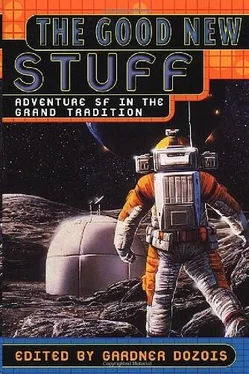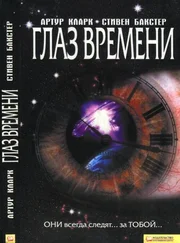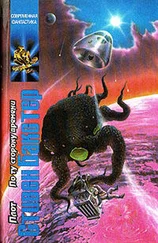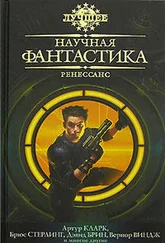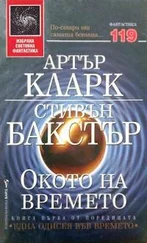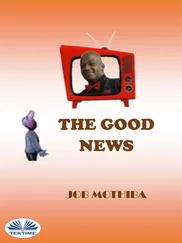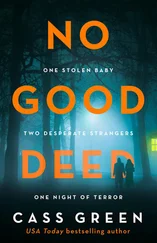Стивен Бакстер - The Good New Stuff
Здесь есть возможность читать онлайн «Стивен Бакстер - The Good New Stuff» весь текст электронной книги совершенно бесплатно (целиком полную версию без сокращений). В некоторых случаях можно слушать аудио, скачать через торрент в формате fb2 и присутствует краткое содержание. Год выпуска: 2002, ISBN: 2002, Издательство: St. Martin's Griffin, Жанр: Фантастика и фэнтези, на английском языке. Описание произведения, (предисловие) а так же отзывы посетителей доступны на портале библиотеки ЛибКат.
- Название:The Good New Stuff
- Автор:
- Издательство:St. Martin's Griffin
- Жанр:
- Год:2002
- ISBN:0-312-26456-9
- Рейтинг книги:3 / 5. Голосов: 1
-
Избранное:Добавить в избранное
- Отзывы:
-
Ваша оценка:
- 60
- 1
- 2
- 3
- 4
- 5
The Good New Stuff: краткое содержание, описание и аннотация
Предлагаем к чтению аннотацию, описание, краткое содержание или предисловие (зависит от того, что написал сам автор книги «The Good New Stuff»). Если вы не нашли необходимую информацию о книге — напишите в комментариях, мы постараемся отыскать её.
The Good New Stuff — читать онлайн бесплатно полную книгу (весь текст) целиком
Ниже представлен текст книги, разбитый по страницам. Система сохранения места последней прочитанной страницы, позволяет с удобством читать онлайн бесплатно книгу «The Good New Stuff», без необходимости каждый раз заново искать на чём Вы остановились. Поставьте закладку, и сможете в любой момент перейти на страницу, на которой закончили чтение.
Интервал:
Закладка:
Meter by meter he felt himself being hauled to safety. The AID woman was grinning.
As they were drawn aboard the galloping airship, Defoe saw Rigger Ray working the winch. Lila lay full out on the deck, reaching down to help her mother. Catwalk Charlie was holding tight to a girder, eyes shut, still waiting for the flaming crash. Defoe could hear him mumbling:
Our Satan that art in Hell,
Damned be thy name.
Lead us into temptation,
And encourage our trespasses…
Defoe was shocked. Charlie had never looked religious. But a brush with death will bring out the Devil in anyone.
Gingerly sliding his boot on, Defoe told his navmatrix to take control of the airship. The Joie righted herself, turning back toward Shacktown.
Hearing Ellenor put in her call to Spindle, Defoe wondered how Helio was doing with Willungha. After murdering two AID workers, trying to frame the Tuch-Dahs, then bungling the cover-up, Helio had serious problems ahead. But so did everyone on Glory. And the first ten thousand colonists were already on their way, leaving Epsilon Eridani at near light speed.
Defoe for one did not want to be there when trouble arrived. Right now he was headed back for Spindle, to spend long lazy hours of enjoying himself and looking for a ship headed out-system. AID could deal with the mess they had made. More people meant more traffic, and one day dirtside and all its dangers would be a batch of not-too-pleasant recollections. The sort of memories you were free to file and forget.
Tony Daniel
A DRY, QUIET WAR
One of the fastest-rising new stars of the nineties, Tony Daniel grew up in Alabama, lived for a while on Vashon Island, in Washington state, and in recent years, in the best tradition of the young bohemian artist, has been restlessly on the move, from Vashon Island to Europe, from Europe to New York City, from New York City to Alabama, and, most recently, back to New York City again. He attended the Clarion West Writers Workshop in 1989, and since then has become a frequent contributor to Asimov's Science Fiction, as well as to markets such as The Magazine of Fantasy & Science Fiction, Amazing, SF Age, Universe, Full Spectrum, and elsewhere.
Like many writers of his generation, Tony Daniel first made an impression on the field with his short fiction. He made his first sale, to Asimov's, in 1990, "The Passage of Night Trains," and followed it up with a long string of well-received stories both there and elsewhere throughout the first few years of the nineties, stories such as "The Careful Man Goes West," "Sun So Hot I Froze to Death," "Prism Tree," "Death of Reason," "Lost in Transmission," "God's Foot," "Candle," "Aconguaca," and others. His first novel, Warpath, a lush, baroque Planetary Romance full of deliberately over-the-top tropes such as superpowered Indians "paddling" birch-bark canoes across the gulfs of interstellar space, was released simultaneously in America and England in 1993, and he subsequently won two thousand dollars and the T. Morris Hackney Award for his unpublished mountain-climbing novel Ascension, based on his story "Aconcagua."
Daniel's career seemed to be well launched at this point, with his short stories receiving a lot of attention and Warpath getting largely positive reviews, but then he was unable to find a publisher for Ascension (it remains unpublished to this day), he stalled on his second novel, and his career abruptly seemed to run out of steam. Little would be heard from him during the middle years of the decade, while he moved restlessly around the world, from one minor job to another. In 1995, though, he returned suddenly to the field with a string of new stories, work even stronger and at a higher level of literary accomplishment than his previous stuff, including "Life on the Moon," which was a finalist for the Hugo Award in 1996, "No Love in All of Dwingeloo," "The Joy of the Sidereal Long-Distance Runner," "A Dry, Quiet War," and a highly impressive novella called "The Robot's Twilight Companion." In 1997, he published a major new novel, Earthling, which has gotten enthusiastic reviews everywhere from Interzone to the New York Times. His career seems to be firmly back on track again, knock wood, and I have a feeling he'll be one of the major players in SF in the opening decades of the new century.
Like George R.R. Martin, Daniel is a lushly romantic writer, and his characters also tend toward Byronism, although Daniel's brooding Byronic heroes tend to be darker, more cynical, and more violent than Martin's are, and also tend to possess Zelaznyesque superpowers and abilities of a sort that Martin's usually do not. One of the major influences on Daniel's work, of course, is clearly that of his one-time mentor, Lucius Shepard, although the impact of Zelazny, van Vogt, Walter M. Miller, Jr., and, oddly, Ray Bradbury can also be demonstrated fairly clearly. Like some of his other young colleagues, though, Daniel's other influences spread far beyond the boundaries of the genre, and even beyond the print world itself; the influence of Japanese samurai movies and spaghetti Westerns on the vivid, violent story that follows are pretty clear, for instance, and Daniel himself has specifically said that one of his direct inspirations for the story was the movies of John Ford.
In "A Dry, Quiet War," he spins a colorful and exotic story of a battle-weary veteran who returns from a bewilderingly strange high-tech future war only to face his greatest and most sinister challenge right at home….
I cannot tell you what it meant to me to see the two suns of Ferro set behind the dry mountain east of my home. I had been away twelve billion years. I passed my cabin to the pump well, and taking a metal cup from where it hung from a set-pin, I worked the handle three times. At first it creaked, and I believed it was rusted tight, but then it loosened, and within fifteen pulls, I had a cup of water.
Someone had kept the pump up. Someone had seen to the house and the land while I was away at the war. For me, it had been fifteen years; I wasn't sure how long it had been for Ferro. The water was tinged red and tasted of iron. Good. I drank it down in a long draft, then put the cup back onto its hangar. When the big sun, Hemingway, set, a slight breeze kicked up. Then Fitzgerald went down and a cold, cloudless night spanked down onto the plateau. I shivered a little, adjusted my internals, and stood motionless, waiting for the last of twilight to pass, and the stars— my stars— to come out. Steiner, the planet that is Ferro's evening star, was the first to emerge, low in the west, methane blue. Then the constellations. Ngal. Gilgamesh. The Big Snake, half-coiled over the southwestern horizon. There was no moon tonight. There was never a moon on Ferro, and that was right.
After a time, I walked to the house, climbed up the porch, and the house recognized me and turned on the lights. I went inside. The place was dusty, the furniture covered with sheets, but there were no signs of rats or jinjas, and all seemed in repair. I sighed, blinked, tried to feel something. Too early, probably. I started to take a covering from a chair, then let it be. I went to the kitchen and checked the cupboard. An old malt-whiskey bottle, some dry cereal, some spices. The spices had been my mother's, and I seldom used them before I left for the end of time. I considered that the whiskey might be perfectly aged by now. But, as the saying goes on Ferro, we like a bit of food with our drink, so I left the house and took the road to town, to Heidel.
It was a five-mile walk, and though I could have enhanced and covered the ground in ten minutes or so, I walked at a regular pace under my homeworld stars. The road was dirt, of course, and my pant legs were dusted red when I stopped under the outside light of Thredmartin's Pub. I took a last breath of cold air, then went inside to the warm.
Читать дальшеИнтервал:
Закладка:
Похожие книги на «The Good New Stuff»
Представляем Вашему вниманию похожие книги на «The Good New Stuff» списком для выбора. Мы отобрали схожую по названию и смыслу литературу в надежде предоставить читателям больше вариантов отыскать новые, интересные, ещё непрочитанные произведения.
Обсуждение, отзывы о книге «The Good New Stuff» и просто собственные мнения читателей. Оставьте ваши комментарии, напишите, что Вы думаете о произведении, его смысле или главных героях. Укажите что конкретно понравилось, а что нет, и почему Вы так считаете.
